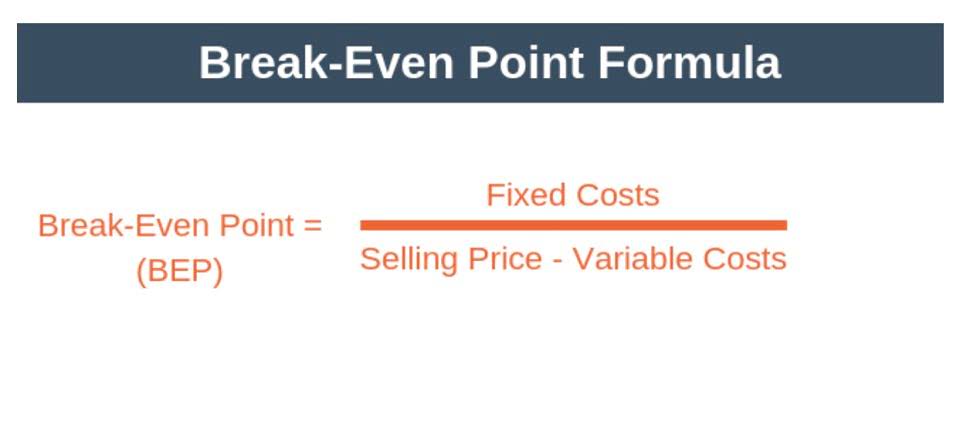
Keep copies of all invoices sent, all cash receipts (cash, check, and credit card deposits), and all cash payments (cash, check, credit card statements, etc.). The general ledger is a record of all financial transactions made by a business. Accounting helps a business understand its financial position to be able to make informed decisions and manage risks. When the Fed meets this week, it is sure to keep its benchmark rate unchanged at a 23-year high, the result of 11 rate hikes. The Fed’s hikes have forced up borrowing costs across the economy — for everything from home and auto loans to credit cards and business loans.
- The ability to think logically is also essential, to help with problem-solving.
- Federal tax returns must comply with tax guidance outlined by the Internal Revenue Code (IRC).
- At larger companies, there might be sizable finance departments guided by a unified accounting manual with dozens of employees.
- You’ll want to make sure you have all the necessary permits and licences that your state requires.
- The general ledger is a record of all financial transactions made by a business.
- Stagger bill payments and have a system or methodology behind when and how you pay certain bills.
Whereas you might only periodically consult your accountant, a bookkeeper touches base more frequently and handles daily accounting tasks. Regardless of who you hire, knowing basic accounting principles can help you understand your business better and have more productive conversations with your financial team. Financial advisors can use the financial data gathered by business accounting to help small business owners make important financial decisions about the future and day-to-day operations. Learn how to manage your own business accounting and choose from different business accounting software. We’ll guide you through a step-by-step guide and provide resources for learning new accounting skills.
What Is the Purpose of Accounting?
These documents provide accurate wage reporting, along with Social Security and Medicare benefits. Excise taxes are specific to certain industries and uses outlined by the IRS. Financial projections should closely align with a company’s goals and objectives. Small businesses should position themselves in a way that helps them achieve long-term financial goals. Accounting process provides financial data for a broad range of individuals whose objectives in studying the data vary widely. The process of identifying, measuring, and communicating economic information to permit informed judgments and decisions by the users of the information.
- Proper documentation of financial transactions is important for preparing financial statements like balance sheets, preparing tax returns, and monitoring a company’s financial health.
- Cash flow statements include internal and external cash inflows and outflows over a certain period, which may include investments, financing, and operational costs.
- To calculate quarterly estimated tax payments accurately, you need to predict your income.
- Setting up a payroll system is an important step for small businesses that employ staff or contractors.
We recommend comparing options to ensure the card you’re selecting is the best fit for you. To make your search easier, here’s a short list of standout business credit cards. Educating yourself about the common small business expense categories will make it much easier to determine what is and isn’t deductible at tax time. As a small business owner, you’re self-employed, and you’ll need to pay self-employment taxes to cover Social Security and Medicare benefits obligations. You’re in business to make money (among other things), so it’s important to figure out a system for how your clients will pay you for your work.
What is accounting and business accounting?
There are numerous software options for small businesses, with QuickBooks and FreshBooks being two of the most popular. When deciding which software program to use for accounting, it helps to first consider what your business needs. You can then compare different programs to evaluate the range of features and benefits that are included, and the overall cost of using it. Remember that if you have employees, you’ll also need to account for payroll tax. If you’re unsure about your tax obligations, you may want to talk to a professional accountant or tax expert for advice. Financial statements can yield valuable insights into how well your small business is managing income and expenses.
It provides various accounting features as well as live bookkeepers and professional advisors. Use receipt-tracking software to organize transactions and expenses for more accurate recordkeeping. Two of the most common accounting standards are the generally accepted accounting principles (GAAP) and the International Financial Reporting Standards (IFRS). To learn more about both of these accounting standards and how they apply to businesses, check out our guide to accounting standards.
How to Pay Off Your Business Debt, Fast
It’s time to evaluate how much money you are actually making, whether your net assets are going up or down, the difference between revenues and expenses, what caused those changes, and how you spend profits. While you’re at it, you’ll identify trouble spots and make adjustments to improve sales and margins. When it comes to daily accounting business needs, you have a pretty light plate.
- You’ll need to provide, on average, three years of financial statements, plus a one-year cash flow projection.
- However, modern accounting as a profession has only been around since the early 19th century.
- When utilizing a comprehensive bookkeeping software program, they become easier.
- However, you must understand accounting and how to monitor and sustain your business’s cash flow.
- If you have numerous expenses to track, it’s best to use accounting software to track them properly.
If your business hires employees, you’ll need to pay employment tax through the Federal Insurance Contributions Act (FICA), which includes Social Security and Medicare contributions. You can choose to physically store your documents using a filing system that works for your business, or you can use a cloud-based recordkeeping system to streamline your filing and save on physical storage space. Businesses structured as partnerships are relatively simple and cheap what is business accounting to register. If you plan to set your business up as a partnership, it’s a smart idea to have a partnership agreement in place, to outline responsibilities, partner payment and dispute resolution. If you use accounting software, all of these journals and ledgers are created behind the scenes. Depending on your business structure, you might also want to open a separate small business credit card to earn points or other rewards and build your business credit.
Accurate accounting reports are crucial for conducting a small business valuation and qualifying for a small business loan. If those are tips your business can benefit from right now, it might be time to hire an accountant. You may not be planning to court investors or sell your business right now, but it’s a good idea to leave your options open. And the best way to do that is to put a proper accounting system in place now. Up-to-date financial statements are essential if you want to fund your small business with a loan.

Internal users are the people within a business organization who use accounting information. For example, the human resource department needs to have information about how profitable the business is in order to set salaries and benefits. Likewise, production managers need to know if the business is doing well enough to afford to replace worn-out machinery or pay overtime to production workers.